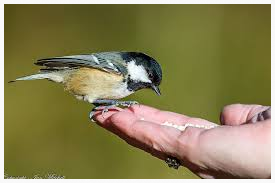Coulda, Shoulda, Woulda
/We all have regrets. Sometimes events don't work out as we wanted them to. When we look back on our failures, we ask, "How could I have made this better? What should I have done differently? What would have improved the outcome?"
When we want to change something that is too late to change, we are creating an unreal situation. For this, we have to use hypothetical grammar.
Note in the above sentences, I wrote "could have, should have, would have." In fast speech, Americans shorten these verb phrases to "coulda, shoulda, woulda." If you don't believe me, start listening to your native-born co-workers. They don't say "could...have, should...have" in natural speech. That would sound slow and robotic. Slow speech like that is reserved for emphasis, maybe to express anger or impatience.
In order to not sound angry or impatient, you need to learn to combine certain words together. This week, I recommend you start with verb phrases. In addition to the three above, you can try these: might have (gone) ---> mighta (gone) must have (been) ---> musta (been)
The headline of a recent article in the Minneapolis Star-Tribune is "Shoulda, coulda, woulda for Vikings after loss to Bears." After losing in the final seconds of their football game, Minnesota Vikings coach Leslie Frazier "wishes he had managed the situation better." Notice the grammar of a regrettable (but unchangeable) event?
"Ohhh! I shoulda sent those files yesterday!"
With this headline, the sports reporter emphasizes that whatever could have been done (should have been done, would have been done) is too late. It sounds like making excuses for poor performance yet one more time. Therefore, "Coulda, shoulda, woulda" is a way of telling others that excuses are not acceptable; they are responsible for the results.
Ask your American friends or co-workers when they might use "Coulda, shoulda, woulda" in a conversation. And stay tuned for more pronunciation tips to come!
Spelling note:Coulda, woulda, shoulda is mostly for speaking. An acceptable way to write these words in email is could've, should've, would've. If you are writing a business letter or technical report, spell them out fully: could have, should have, would have.
Images via fotolia.com
























